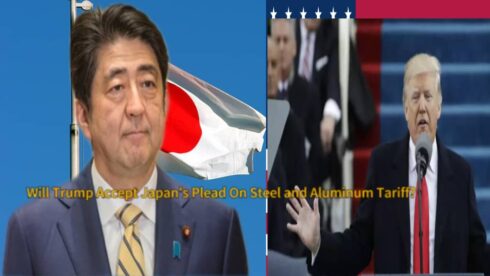Japan’s has formally requested the United States to exempt its steel and aluminum exports from tariffs imposed under Section 232 of the Trade Expansion Act. The appeal follows ongoing trade negotiations between the two economic powerhouses, as Tokyo seeks to mitigate the financial burden on its metal industry. The request underscores Japan’s commitment to fostering stable economic ties with Washington while ensuring its industries remain competitive.
Japan has long been a key supplier of high-quality steel and aluminum to the U.S. market, with its exports supporting crucial American industries such as automotive manufacturing and infrastructure development. However, the tariffs—initially introduced during the Trump administration and maintained under President Biden’s leadership—have added significant costs for Japanese producers. By seeking an exemption, Tokyo aims to align itself with other allies, such as the European Union, which successfully negotiated similar trade relief measures.
Impact of Tariffs on Japan’s Metal Industry
The U.S. tariffs, set at 25% on steel and 10% on aluminum, have significantly affected Japanese manufacturers, forcing them to either absorb the costs or pass them on to buyers. This has resulted in reduced profit margins and lower competitiveness in the American market. The tariffs have also led to supply chain disruptions, as companies struggle to maintain stable pricing structures in an already volatile global economy.
Japanese steel and aluminum producers are known for their advanced technology and high-quality materials, making them integral to industries worldwide. However, prolonged trade restrictions have driven some manufacturers to seek alternative markets, potentially reshaping trade dynamics in the Asia-Pacific region. Tokyo’s exemption request highlights the urgency of resolving these trade barriers to sustain economic stability and industrial growth.
Strategic Trade and Security Considerations
Japan’s request is not just an economic plea but also a strategic maneuver to reinforce its position as a key U.S. ally. As tensions with China continue to shape global trade policies, Tokyo is leveraging its long-standing partnership with Washington to secure fairer treatment in the international market. Japan has consistently supported U.S. security objectives in the Indo-Pacific, making its case for exemption a matter of both trade and geopolitical alignment.
The Biden administration has shown a willingness to reconsider tariff policies for allied nations, particularly those playing a crucial role in global supply chains. Japan’s emphasis on its contributions to U.S. national security and economic resilience may bolster its case for an exemption. Analysts suggest that Tokyo’s approach aligns with broader U.S. efforts to strengthen alliances in the face of rising economic and security challenges.
Comparisons with Other Trade Partners
Japan’s push for tariff exemptions follows a precedent set by other key U.S. allies. In 2021, the United States reached an agreement with the European Union to replace tariffs with a quota system, reducing trade tensions. The U.K. also secured a similar arrangement, allowing a certain volume of metal exports to enter the U.S. duty-free. Tokyo is now seeking comparable treatment, arguing that its industries should not face disadvantages compared to other allied economies.
Unlike China, which has been subjected to broader U.S. trade restrictions, Japan has maintained a strong economic partnership with Washington. Given its adherence to fair trade practices and commitment to high environmental and labor standards, Japan’s case for exemption appears strong. However, the outcome will largely depend on how negotiations unfold and whether the U.S. sees sufficient strategic benefits in granting Tokyo’s request.
Potential Economic and Political Outcomes
If Japan secures exemptions, its steel and aluminum industries could regain lost ground in the U.S. market, fostering increased trade and investment. This could benefit American manufacturers as well, ensuring a stable supply of high-quality materials at competitive prices. The move would also strengthen economic ties between the two nations, reinforcing broader trade agreements such as the Indo-Pacific Economic Framework (IPEF).
On the other hand, if the U.S. rejects Japan’s request, Tokyo may be forced to explore alternative trade routes or seek retaliatory measures. This could strain bilateral relations at a time when global economic cooperation is crucial. Japan’s government is likely to continue pressing for a resolution, emphasizing the mutual benefits of tariff relief for both countries.
Future Prospects for U.S.-Japan Trade Relations
The coming months will be critical in determining the direction of U.S.-Japan trade policies. With global supply chains facing ongoing disruptions and economic uncertainty, both nations have incentives to find a balanced approach. Japan’s persistence in securing a fair trade environment underscores its long-term vision for a resilient economic partnership with the United States.
Observers expect that negotiations will involve high-level discussions between trade representatives from both sides. Given the shifting geopolitical landscape, Washington’s response to Japan’s request could serve as a signal of its broader trade strategy. Whether through exemptions, modified tariffs, or alternative trade agreements, the outcome will shape the future of economic cooperation between the two allies.














